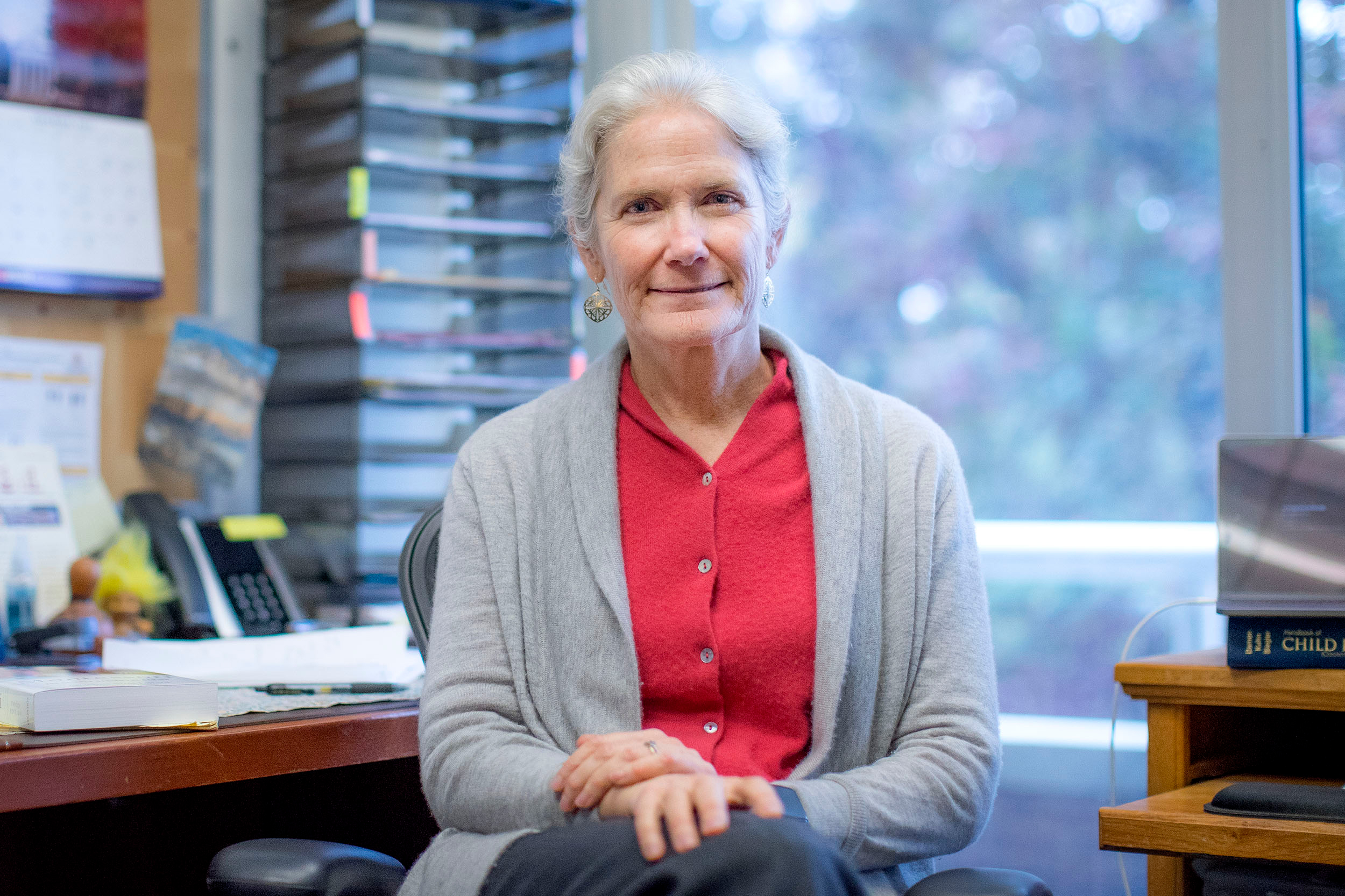Attending a Montessori preschool can help low-income students keep pace academically with their peers, according to a recent study led by University of Virginia psychology professor Angeline Lillard.
Lillard and her colleagues studied children who entered a lottery for Montessori schools in Hartford, Connecticut. The team tracked the academic performance of both the students who received Montessori placements and those who didn’t. They found that the low-income students in the Montessori group kept pace with their wealthier peers, while the low-income students in the non-Montessori programs fell behind.
On Monday, Lillard appeared via Facebook Live on the University’s page to discuss her research, the results and their implications, and next steps. Watch the video below and see an edited transcript of some of her answers.
Q. Can you give us a short history of the Montessori teaching method?
A. Maria Montessori started to develop this form of education over 100 years ago. She was a physician in Italy, and she was interested in helping children develop their capabilities to their fullest potential.
She developed a system in which she put children in what was essentially a house. She watched them interact with some materials, and she started to develop theories about what was going on. She essentially felt that there was a bodily developmental stream and a mental developmental stream very much guided by genes and interaction with the environment, and that when children are free to let those work together – to let the mind and body work together – then people can develop to their fullest capabilities.
In a Montessori classroom, children are free to use materials in constructive ways, to develop their personalities. What’s really in the bull’s-eye of Montessori education is personal development. It so happens that students do really well on test scores, but it’s kind of a flip of what we do in conventional education, where test scores are central, and we just hope that personal development also occurs.
Q. Can you describe the latest findings of your study?
A. My recent study in Hartford, Connecticut stands out from other studies on Montessori education in that it is a longitudinal investigation, and we were able to study children pretty close to baseline, as they were starting out in a Montessori magnet preschools when they were 3 years old. Then we saw them at the end of that year and in the following two years: four test periods over three years.
The children in the control group had lost the lottery to get into these schools and ended up at many different schools in the Hartford level.
What we found in the study is that Montessori children did better overall. Though they were all the same at the baseline test at the outset, the Montessori students did better over time on academic achievement and social understanding, and their executive function was significantly better at age 4.
Sometime you worry [that] if you give them all these academics, they aren’t going to like school much, but the children in Montessori reported liking school more than their peers.
The things that were not significantly different were creativity and social problem-solving, though other studies have seen different results in those areas.
It was an impressive finding overall, but when we broke the Montessori and control samples down by subgroups and looked at the lower-income half of the sample, what we found were particularly remarkable effects.
The lower-income half of the sample in control schools went down at ages 4 and 5 related to the rest of the sample. The conventional schools were just failing them. But the children in Montessori went up in those time periods, so that they were no longer significantly different than their peers either in the Montessori school or in the control schools. That was a very exciting finding.
Q. Were you able to make any inferences about the elements of Montessori education that might particularly benefit low-income children?
A. People are always wanting to know, “What is it about Montessori?” If we just took away the grades or gold stars out of conventional schools, or used the age groupings they used in Montessori, or if we gave children more choice – would that produce the same results?
My book talks about several different ways that Montessori has differences from regular schools, and these differences are very hard to replicate in regular school.
My own sense, as I’ve gotten to know Montessori more deeply, is that it’s kind of like culture. In cultural psychology, we say that mind and psychology make each other up. You can’t take the fact that there is co-sleeping in Japan until the age of 6, for example, and say if we did that in the United States, we’d be more like Japanese people. It doesn’t work like that. There’s a whole cultural system that’s interwoven that produces these differences, and I believe it’s like that with Montessori.
The system works together in a whole with several different elements, and you can’t take just a piece of it and have the same result.
Q. What’s next for your research?
A. I’d love to be able to follow these children as they get older. I’d also like to look at much later outcomes of Montessori. You often hear anecdotally that Montessori students are class presidents or captains of sports teams. I’d like to look at life satisfaction and other things along those lines.
A third line we’re looking at is whether some of the changes that are reported to happen to children once they start to focus and concentrate in a Montessori environment are actually epigenetic changes, or changes that result from a change on a particular site on a gene.
Media Contact
Article Information
November 13, 2017
/content/qa-how-montessori-school-helps-low-income-children-close-gap

